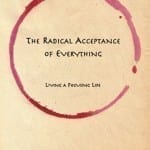[spb_text_block animation=”none” animation_delay=”0″ simplified_controls=”yes” custom_css_percentage=”no” padding_vertical=”0″ padding_horizontal=”0″ margin_vertical=”0″ border_size=”0″ border_styling_global=”default” width=”1/1″ el_position=”first last”]
Review by John Keane
[/spb_text_block] [spb_boxed_content type=”whitestroke” box_link_target=”_self” padding_vertical=”4″ padding_horizontal=”4″ width=”1/1″ el_position=”first last”]
The Radical Acceptance of Everything:
Living A Focusing Life
by Ann Weiser Cornell, PhD
and featuring Barbara McGavin
(Calluna Press; 2005)
 This book is subtitled Living a Focusing Life. I sit now with a very strong sense that much of the author’s life is reflected through the pages of this book. In a very concrete way Ann has gifted us all in sharing the struggles, the pains, the insights and joys of her wonderful journey.
This book is subtitled Living a Focusing Life. I sit now with a very strong sense that much of the author’s life is reflected through the pages of this book. In a very concrete way Ann has gifted us all in sharing the struggles, the pains, the insights and joys of her wonderful journey.
This work is made up of a collection of articles. It can be read in sections or it can be read through. My own personal experience is that while the individual articles are most interesting and very well written, one gets a real sense of the evolution (or carrying forward) of the writer’s own journey from reading it in its entirety. Like many things in Focusing, the whole is greater than the sum of its parts.
The Radical Acceptance of Everything not only appeals intellectually but also impacts on the felt level of cognition. There were many occasions when I had to set the book down for a few hours or a few days to process what it had evoked in my body. I was especially struck by the article Ann includes written by Barbara McGavin: “Focusing with the Part that Wants to Die.” Language fails to communicate the richness of this text. If you do nothing else in 2006, read this article.
Ann Weiser Cornell takes up a great challenge of [Eugene] Gendlin’s in this book. He tells us that we must make our concepts from experience. The proof of this can be found throughout this book. She very bravely includes many stories from her own process – stories that still lie very close to her heart. She uses these stories and her experience as a facilitator to develop her own Focusing concepts and methods.
The manner in which she communicates these developments is both fascinating and challenging. I cannot say that I agree with all that she has to say in these articles, but she never imposes these concepts or methods on the reader. Rather, she articulates how her thinking has developed and supports these findings with examples from her own process, and the processes of others.
I agree with much of what Ann says in her articles; e.g., with regards to our relationship with the critic, and our use of language within the Focusing process. While resonating with these topics, I found a great sense of relief – an echoing through the pages of the strong felt senses that I experience myself. The parts that I don’t agree with can be held in a gently alert way – conscious that these may be areas that I have not yet explored within my own process.
One may get the impression from this article that Ann Weiser Cornell has developed some sort of “new Focusing.” I believe that this would be an inaccurate criticism. She remains strongly loyal to her mentor and teacher Eugene Gendlin. This book marks a continuation of, rather than a departure from, Gendlin’s model.
She tells us: “To define a process by the way it is taught is to lose the essence of the process.” This work marks an exploration of how she has developed both her own skills as a focuser and her skills of sharing this process with others.
Ann does not hold strictly to the six steps, rather she alters and adapts the way the process is taught. I believe she has preserved the essence of the process in this endeavour. Perhaps she has provided us with a wider bridge into this domain – a bridge firmly built upon her own experiences.
This book should appeal to a wide audience. The clear and precise language used to communicate the process will delight the beginner. The Focusing professional can use it as a resource to assist them develop their own practices and ideas. And, for those of us interested in the conceptual foundation of Gendlin’s work, this book stands as a wonderfully clear translation of how his concepts impact on real lives.
The Radical Acceptance of Everything is well worth a read. But don’t just reflect on it with your mind, let it sink in and nourish the body as well. For me, it is one of those rare books that will be kept and read again and again.
– John Keane
Dublin, Ireland
[/spb_boxed_content] [spb_blank_spacer height=”30px” width=”1/1″ el_position=”first last”]

